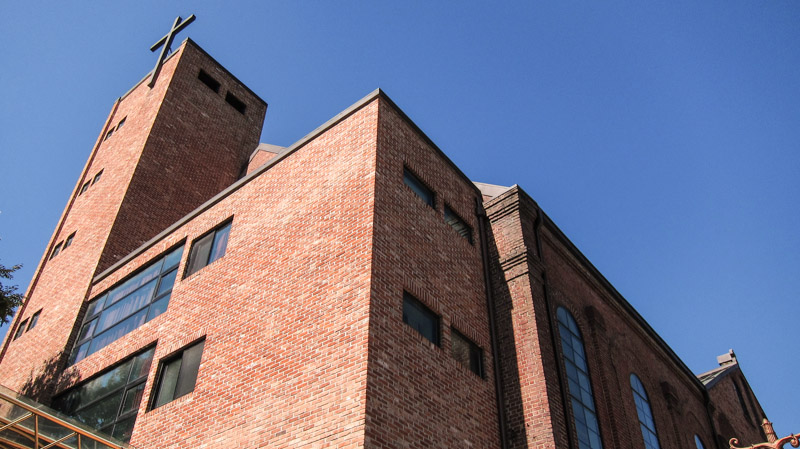
Seungdong Presbyterian Church, located near Insa-dong, was established in 1893 by Samuel Foreman Moore (1860-1906). Over the years, the church has been relocated and renamed many times. Before being renamed Seungdong, it has been known by as Gondanggol, Jungang, and Baekjeong.
When the church was known as Baekjeong, meaning butchers, it attracted social underdogs and mysterious figures of the Joseon society.
On February 20. 1919, a group of students secretly met here in a chamber located on the first floor. Their mission was to plan an independence movement on March 1. The idea of the independence movement began to spread across Korea by February 23.
The official deceleration of independence against the Japanese occupation of Korea was distributed here on February 28.
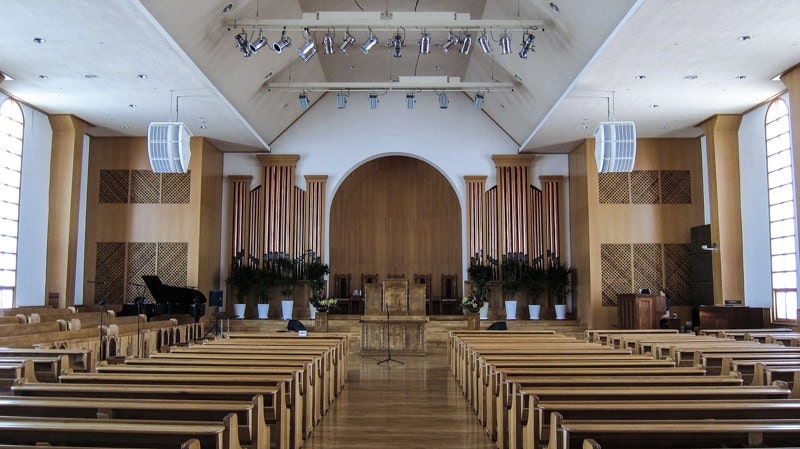
The building covers 660 square meters (6,458 square feet). Interestingly, all records about the architect and builders are unknown as they have been lost.
If you are in the Insa-dong area, be sure to keep an eye out for this magnificent and beautiful, red brick church. If you are unsure of its exact location, odds are you would have no idea it even existed.
It is hidden off a side road and extremely easy to miss as it has since been blocked by newer and more modern buildings. If the door is open, go inside and check out the basic yet beautiful interior.
Seungdong Presbyterian Church Information
Admission
Free
Address
7-1 Insadong-gil, Jongno District, Seoul, South Korea
GPS Coordinates: 37.571577,126.986093
How to Get Here
Take Subway Line 1 to Jonggak Station (Exit 3).
Walk 300 meters to the first major intersection and turn left.
Walk 100 meters and stay to left at the fork towards Insadong-gil.
Continue 70 meters to reach an alleyway with a sign pointing towards the church.
Turn left here and continue down the alley to reach the church.
Map
Additional Resources
Klook
Klook offers discounted tickets and reservations for attractions and services in Seoul—from theme parks and museums to tours and transportation.
Viator by TripAdvisor
Book tours, activities, and unique experiences in Seoul—from sightseeing to cultural events and outdoor adventures—offered by local providers.
Rakuten
Save with cashback on hotels and travel services. Sign up and you could earn $30 cashback on your first purchase over $30.
Book Recommendations
Prefer a physical guide? Fodor’s Seoul offers detailed recommendations, maps, and travel tips for the city.
Nearby Sights
Tapgol Park
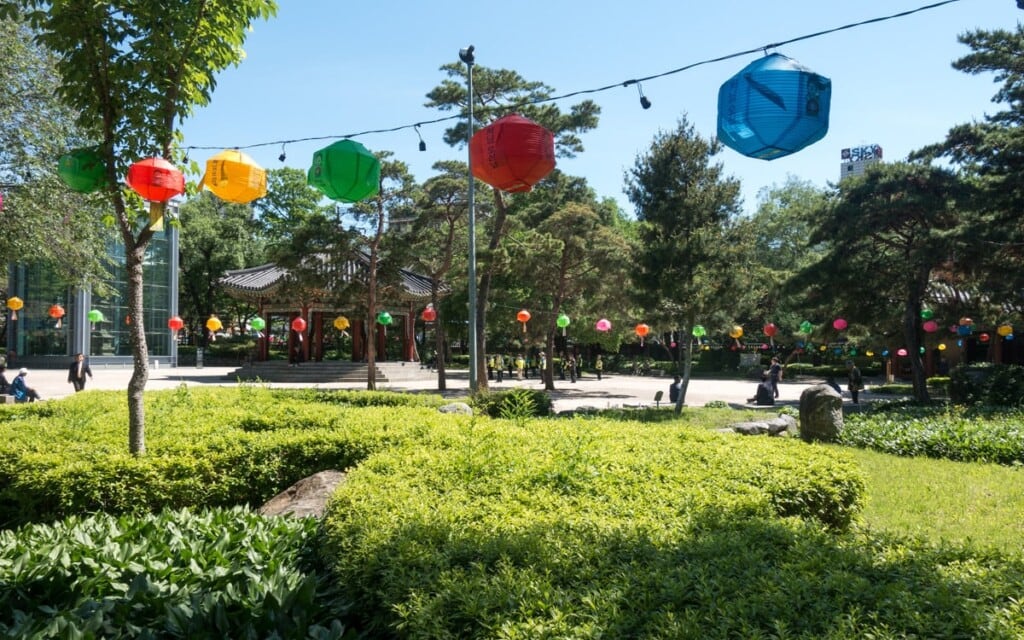
Tapgol Park is a public park that lies at the center of Seoul, near Insa-dong. It was here in 1919 where the March 1st Korean Independence Movement began. This movement called for the independence of Korea from Japanese rule. The…
Bosingak Belfry
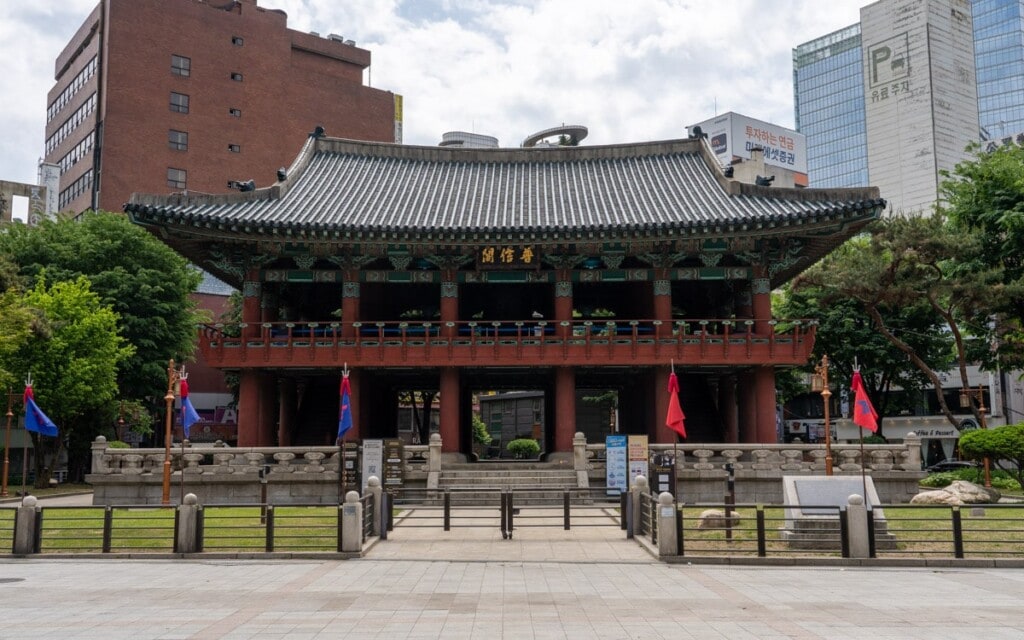
Located in the heart of Insa-dong is Bosingak Belfry. This historic bell pavilion, or bell tower, stands out in a sea of modern skyscrapers in the Jongno District. The Jongno District gets its name from Jongno, a major road which…
Ssamzigil
Ssamziegil, also known as Ssamziegil, is a colorful shopping and culture complex in Insa-dong that features cafes, galleries, and workshops. The complex's design uniquely blends contemporary elements with traditional Korean charm. The complex opened in 2004 and is now a…
Insa-dong
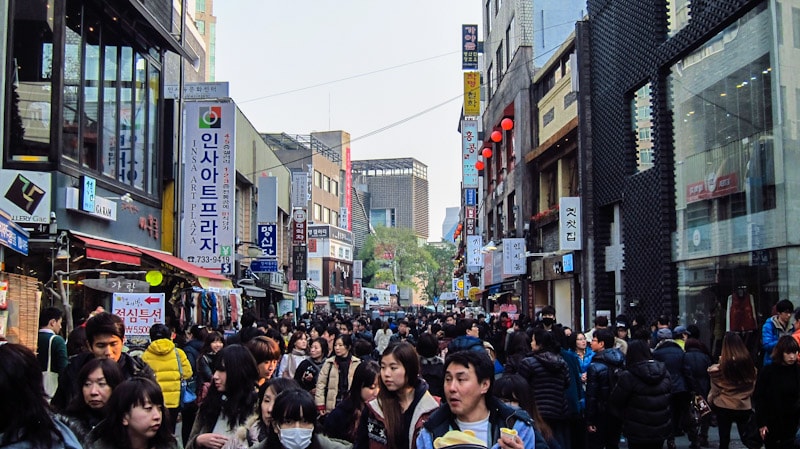
Insa-dong is a popular neighborhood in the heart of Seoul that is often visited by locals and tourists wanting to experience traditional culture of Korea. Streets and narrow back alleys are lined with art galleries, wooden tea houses, restaurants, cafes,…
Cheondogyo Central Temple
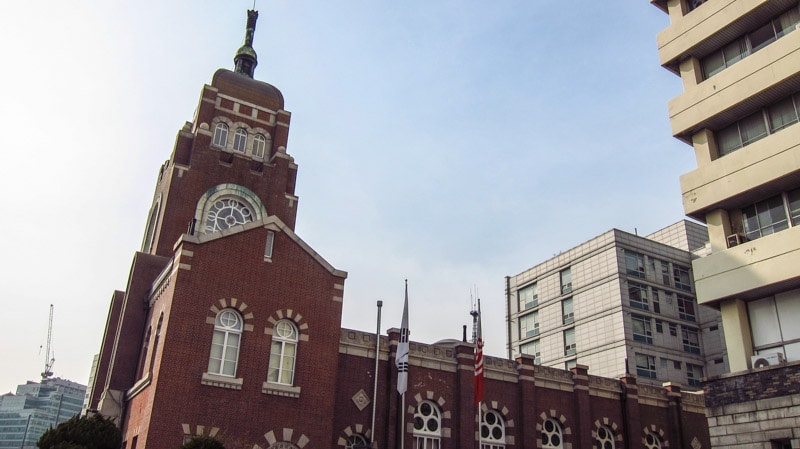
When Cheondogyo Central Temple was built between 1918 and 1921 it was used as a temple of Cheondoism, a 20th century Korean religious movement. Cheondogyo literally means "religion of the Heavenly Way." The roots of Cheondoism are based on the…
Jogyesa Temple
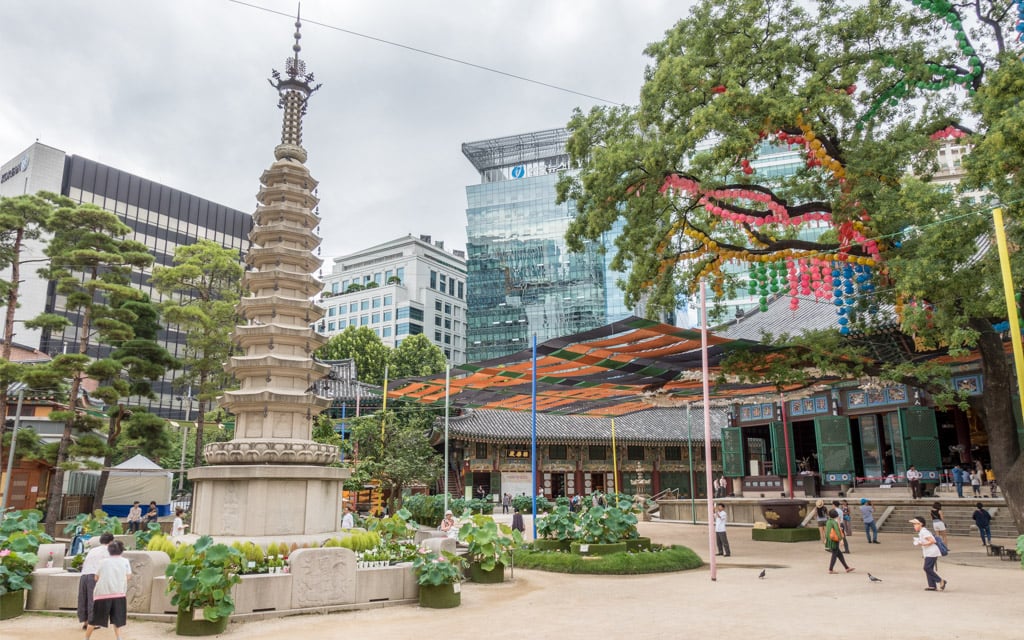
Jogyesa Temple is one of the most important Buddhist temples in Korea and a symbol of Korean Buddhism. It is located in the heart of the city near Insa-dong. Since 1936, it has been the head temple of the first…
Last Updated on Feb 6, 2026